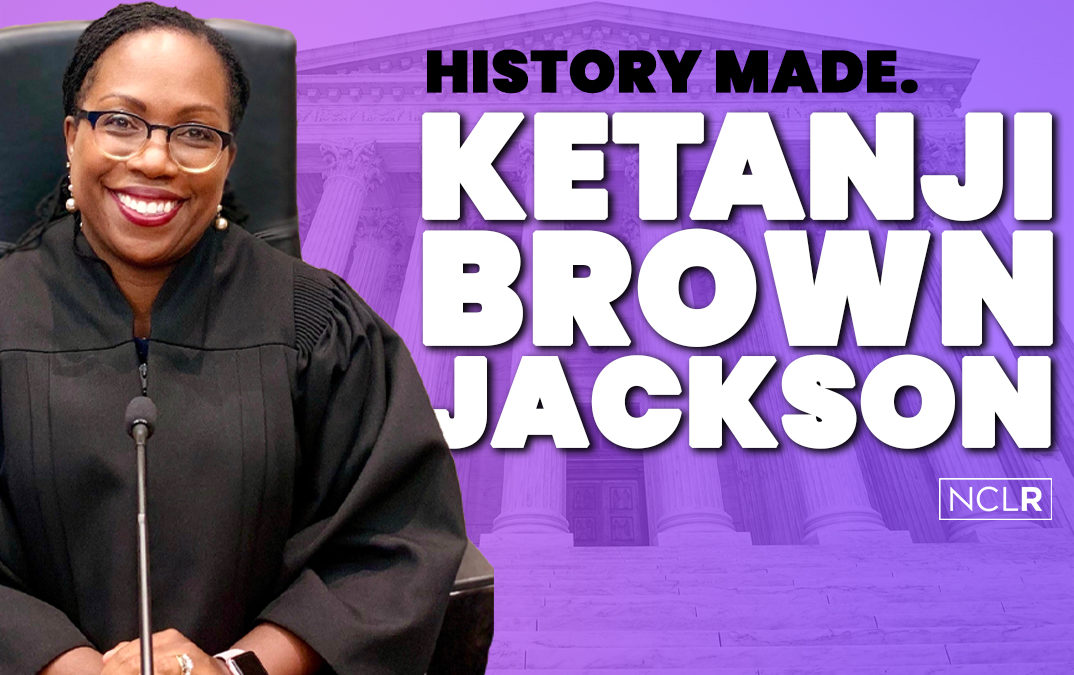FOR IMMEDIATE RELEASE
April 7, 2022
CONTACT
Christopher Vasquez | NCLR Director of Communications
CVasquez@nclrights.org | (415) 365-1337
Historic Appointment Brings Needed Diversity to Nation’s Highest Court
WASHINGTON, DC – Today, by a bipartisan vote of 53-47, the United States Senate confirmed Judge Ketanji Brown Jackson to serve as an Associate Justice on the United State Supreme Court. She will take her place on the bench following the retirement of Justice Stephen Breyer at the conclusion of the Court’s current term in June.
Judge Jackson’s historic confirmation will make her the first Black woman – and the first former public defender – to serve on the nation’s highest court.
Statement from NCLR Executive Director Imani Rupert-Gordon (she/her):
“We are thrilled to join in the celebration today of the historic and bipartisan confirmation of Judge Ketanji Brown Jackson to the U.S. Supreme Court. As a leading civil rights organization that works through the courts to seek equity and justice for LGBTQ people, we are acutely aware of how important it is to have a judiciary that reflects the diversity of this country.
Judge Jackson is immensely qualified to serve on the nation’s highest court and brings important professional and experiential diversity to the position, which will benefit us all. Her perspective will enrich the Court’s deliberations and her presence will increase public confidence in the institution. Judge Jackson has already inspired us with her extraordinary professional accomplishments and contributions, and we know that she will continue to inspire this and future generations as an exceptional Supreme Court Justice.”
xxx
The National Center for Lesbian Rights (NCLR) is a national legal organization committed to advancing the human and civil rights of the lesbian, gay, bisexual, transgender, and queer community through litigation, public policy advocacy, and public education. Since its founding, NCLR has maintained a longstanding commitment to racial and economic justice and the LGBTQ community’s most vulnerable. https://www.nclrights.org










